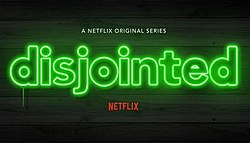‘Disjointed’: insert pot joke here

“Disjointed” is a perfect example of why raw aggregate review scores shouldn’t be trusted without reading actual reviews.
Ruth (Kathy Bates, showing her comedy chops), runs a marijuana dispensary in a magical version of California where recreational use of the drug has been legalized. This caused her half-black son Travis to return home and attempt to mold his mother’s shop into a profitable retail store.
I bring up Travis being half-black because the show sure doesn’t let you forget. It’s as if his character was written as half-black and half-Jewish so every risqué joke the writers came up with, involving either Jewish people or black people, could be funneled into his mouth for a risk-free punchline.
On the surface, this show feels like it’s been through the cynical studio wringer. It’s easy to imagine a studio executive demanding a show that captures the hip trends of today, and the idea of “Disjointed” barely beating out someone’s pitch for a fidget spinner-focused reality show.
Yet, at its core, I find this show has a lot of heart. It’s fun to piss on ideas that seem like corporate hack-jobs (see: “The Emoji Movie”). It seems most television critics ripping “Disjointed” a new orifice did it the injustice of only watching the awkward pilot.
Between ex-Daily Show writer Chuck Lorre and David “I worked on most sitcoms ever” Javerbaum, the creators have some serious pedigree. For every two lame jokes that fall flat, one pure moment of comedy pops up.
The un-funny scene in which a guy can’t have sex because he keeps thinking about his mom that we’ve seen in every sex comedy ever? “Disjointed” expands this tired scene so each person has a mental copy of Ruth killing the mood until both real people leave and the shot is a split-screen of two versions of Kathy Bates bickering.
Occasionally a joke or idea pops up so good it doesn’t feel like it fits in the show. One of the characters is Carter, an Operation Iraqi Freedom veteran, working as a security guard at Ruth’s shop.
A recurring bit in each episode involves cutting to Carter as he begins to lose touch with reality and have a PTSD moment; out of nowhere a powerful animated beat poem about the hell that is PTSD. Seriously, these animations could be clipped out and win all kinds of awards.
In the second episode, Carter relives some of the worst moments of his life playing out at the same time as different camera feeds on the store’s security system. By episode three the show halts its gags to have a responsible discussion on the effects of post-traumatic stress.
One could argue this is a clumsy attempt to push the idea pot can magically fix most mental problems, but from the episodes I’ve seen, “Disjointed” remains the best discussion of PTSD I’ve seen in a television show.
Despite its faults, “Disjointed” delivers on what it promises in a way most streaming-exclusive shows can’t.
 (4.5 / 5)
(4.5 / 5)


